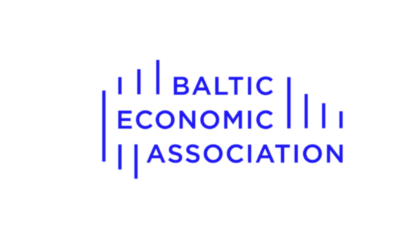We are pleased to invite you to the next Baltic Economic Association Online Research Seminars and are delighted to welcome Jaan Masso (University of Tartu). Jaan is Head of Chair of Economic Modelling, programme managers of the Master’s Programme in Quantitative Economics and Senior Research Fellow of applied econometrics at the University of Tartu (UT). He has also worked as a visiting researcher at Eesti Pank. He holds a PhD in Economics from the UT since 2005. His main research areas are labour economics, migration, foreign direct investments, innovations, international trade, research policy. He has participated in various national and international research projects (EU, ILO, OECD, World Bank). His publications include articles in Journal of Comparative Economics, European Journal of Industrial Relations, Eastern European Economics, Economics of Transition, Services Industries Journal, Scottish Journal of Political Economy, International Business Review, Review of World Economics. He is Associate Editor at the Baltic Journal of Economics and a member of the board of the Baltic Economic Association.
More about the speaker: https://www.etis.ee/CV/Jaan_Masso/est?tabId=CV_ENG
Speaker: Jaan Masso (University of Tartu)
Title: Joining and exiting the value chain of multinationals and the performance of suppliers: evidence from inter-firm transaction data (with Priit Vahter)
Paper available here.
Abstract: This paper investigates the productivity effects for domestic suppliers from joining and exiting the value chains of multinational enterprises (MNEs). The vast majority of prior literature has relied on sector-level input-output tables in estimating the effects of vertical linkages of FDI. Instead, our econometric analysis of the creation and destruction of backward linkages of MNEs is based on information on firm-to-firm transactions recorded in the valued added tax declarations data. Treatment analysis based on propensity score matching and panel data from Estonia suggests that starting to supply multinationals initially boosts the value added per employee of domestic firms, including effects on the scale of production and the capital-labour ratio. These first linkages to MNEs do not affect the total factor productivity (TFP) of domestic firms, suggesting that TFP effects take time to materialise. We further find that there are limits to the wider diffusion of the effects of linkages to MNEs. We find no significant positive effects on the second-tier suppliers: the positive effects are limited to the first-tier suppliers with direct links to MNEs. One novel result is the evidence that the productivity of suppliers does not fall, on average, after decreasing or ending supplier relationships with MNE customers.
Date: Thursday, February 17
Time: 16:00 Vilnius, Riga, Tallinn
Topic: BEA seminar – Jaan Masso
Time: Feb 17, 2022 04:00 PM Helsinki
Join Zoom Meeting
https://sseriga-edu.zoom.us/j/85427332241?pwd=WWE3ME1FaHZqaGZoeVJCNEs5MkJMZz09
Meeting ID: 854 2733 2241
Passcode: 740705

